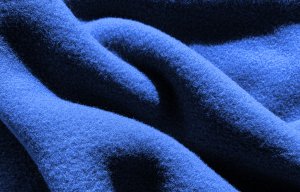
PrimaLoft and Shanghai Challenge Textile partner for technological innovation
PrimaLoft will expand biodegradable technologies with the introduction of PrimaLoft Bio Performance Fabric.

15th November 2018
Innovation in Textiles
|
Latham, NY/Munich
PrimaLoft, a leader in advanced material technology, will expand biodegradable technologies with the introduction of PrimaLoft Bio Performance Fabric, the 100% recycled, biodegradable synthetic fabric. PrimaLoft Bio Performance Fabric joins the recently launched PrimaLoft Bio Insulation. The basis of both innovations is an improved fibre technology, which allows a highly accelerated biodegradation under certain environmental conditions. Both products are expected to be commercially available from fall of 2020.
“From the beginning of this process, we have always considered fabrics to be a particularly important part of the development of biodegradable materials. With this advancement, a fabric garment may now be completely returned to nature,” said Mike Joyce, president and CEO of PrimaLoft.
“Because we will not compromise performance, we needed to ensure that our biodegradable fibres would stand up to the rigorous process of manufacturing fabrics, while maintaining its ability to degrade. This is really a new horizon, and we try to set the standards towards significantly lessening the environmental impact of the textiles industry.”
Made from 100% post-consumer recycled material, PrimaLoft Bio fibres break down when exposed to specific environments – such as a landfill or the ocean. PrimaLoft has enhanced the fibres to be more attractive to the naturally-occurring microbes found in these environments. The microbes eat away at the fibres at a faster rate, returning the fabric or insulation to natural elements.
As a result, this breakthrough helps to solve the growing problem of microplastics littering the ocean, a significant issue for the textile and other industries. It is estimated that half a million tons of plastic microfibres shed during the washing of plastic-based textiles such as polyester, nylon, or acrylic end up in the ocean every year, according to research from The Ellen Macarthur Foundation.

PrimaLoft says its PrimaLoft Bio fibres will only biodegrade when exposed to the naturally-occurring microbes in landfills or bodies of water, thus, the fabric remains highly durable throughout its usable lifecycle in a garment.
Specific test results show 84.1% biodegradation in 423 days under ASTM D5511 conditions (accelerated landfill simulation) and 55.1% in biodegradation in 409 days under ASTM D6691 conditions (accelerated marine simulation).
“We never saw recycling as the final answer. We have not only been able to break the biodegradability code but we’re really setting sustainability forward,” continued Joyce. “We try to contribute with new fibre technologies that are less harmful for the environment. This is part of our commitment to be Relentlessly Responsible.”
To date, PrimaLoft has saved more than 90 million plastic bottles from landfills and transformed them into premium insulation technologies. Earlier this year, PrimaLoft introduced its first insulations with 100% post-consumer recycled material. By 2020, 90% of PrimaLoft insulation products will have at least 50% post-consumer recycled content, without compromising performance.
Further reading
Highly accelerated biodegradation rate for new synthetic insulation material

Business intelligence for the fibre, textiles and apparel industries: technologies, innovations, markets, investments, trade policy, sourcing, strategy...
Find out more